Election of President-Elect, Regional Directors-at-Large and Members-at-Large

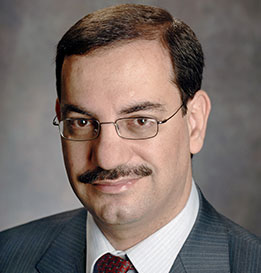
Ali H. Sayed
SPS Past President and Chair, 2020-2021 Nominations and Appointments Committee
It is my pleasure to announce that the IEEE Signal Processing Society (SPS) annual election will commence on 16 August, and your vote is more important than ever! This year, all eligible SPS Members will vote for the next President-Elect (term 1 January 2022 through 31 December 2023), in addition to the Regional Directors-at-Large for Regions 7 & 9 and 10 (term 1 January 2022 through 31 December 2023), and Members-at-Large (term 1 January 2022 through 31 December 2024) of the IEEE Signal Processing Society Board of Governors (BoG).
Ballots will be mailed to SPS members. The ballot includes a diverse slate of candidates for all elections, which were vetted by the SPS Nominations and Appointments Committee, as well as a space for write-in candidates. This year’s election offers SPS members the opportunity to cast their votes via the web at https://eballot4.votenet.com/IEEE for up to one President-Elect, one Regional Director-at-Large for your corresponding Region: Regions 7 & 9 (Canada and Latin America) and Region 10 (Asia and Pacific), and three Member-at-Large candidates. Ballots must be received at the IEEE no later than 1 October 2021 to be counted. Members must meet the eligibility requirements at the time the ballot data is generated to be eligible to vote. To be eligible to vote in this year’s Society election, you had to have been an active SPS Member, Affiliate, or Graduate Student Member as of 30 June 2021. This is the date when the list of eligible Society voting members was compiled.
The 2021 candidates for President-Elect (presented in alphabetical order), and their candidate statements, appear below:
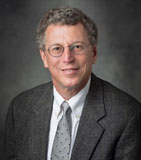
Charles A. Bouman
The disruptions of the past year have brought with them unprecedented challenges and opportunities. As IEEE Signal Processing Society President-Elect and President, I would use the society’s technical and financial strength to capitalize on opportunities and meet challenges by taking an agile and entrepreneurial approach.
In my previous roles in the SP Society, I demonstrated my ability to create highly successful and innovative initiatives in, for example, the creation of the IEEE Transactions on Computational Imaging, and the Special Interest Groups (SIG) structure for the on-boarding of new technical topics. I believe in bringing people together to take on challenges, and I see huge opportunities in the society in areas such as AI, machine learning for signals and science, open-source software, community building, and education. My goal would be to continue to establish the society as both a friendly “go-to” forum for the dissemination of impactful results, and the place industry first considers when they want to solve a problem or meet leading experts. We need to continue to expand the depth, breath, and accessibility of technical forums and to employ a wider range of educational media so that authors can more widely disseminate their work and signal processing professionals can more easily meet their needs.
My focus would be to serve the global signal processing community with an emphasis on the following thrusts:
*Transitioning to Open Access – OA publications allow for wider distribution and easier access of technical content. The SP Society must continue to move rapidly toward OA publication models that are both affordable and sustainable. To do this, we will need to develop more OA publication venues while simultaneously developing new business models that leverage the community and third-party investment.
*Next Generation Conferences - Ironically, the past year’s crisis has created a unique opportunity for the society to reimagine the concept of conferences. Hybrid conference formats that blend on-site activities with virtual ones, offer the potential for more affordable and more geographically and technically diverse communities to discuss important new topics in greater technical depth. Approaches to enhancing conferences include: creating targeted satellite meetings; exploiting synergy between conferences and journals; and expanding educational, tutorial and opensource software development activities.
*Increasing Society Diversity - For a successful future, our society must proactively build diversity by reaching out to under-represented communities and partnering with representative organizations to create a pipeline of future talent. We need to demonstrate and communicate that signal processing can be a fun and rewarding career path for young people around the world with all backgrounds and experiences!
*Technology Policy - The SP Society must increase its external influence by helping to set priorities for technology investment both within and outside the society. By identifying important technological trends, the society can be more agile and better engage with a wide range of government and non-government organizations that impact the signal processing community.
Based on this, I ask for your vote for President-Elect of the IEEE Signal Processing Society!
For more information about Charles A. Bouman, please visit https://cabouman.github.io/SignalProcessingPresidentElect/
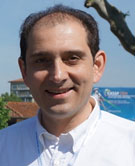
Nicholas Sidiropoulos
SPS has been my professional home for 32 years. I am a signal processing aficionado: passionate about the unique blend of theory, methods, data, algorithms, and applications that make up “signal processing magic’’. We have breadth and the ability to translate and innovate between application domains, which is what makes signal processing such an exciting discipline. I am also passionate about science, inclusion, and fairness. During my term as chair of the SPCOM TC, for which I received the Society-level Meritorious Service Award, I helped institute a “scan-review” process that gives every paper published in TSP a chance to be nominated for paper award – this is still in use 16 years later. As SPS Vice President-Membership, I led motions to ensure balanced technical area representation in the SPS Fellow Evaluation Committee, and to reduce SPS membership fees for members in developing countries. In 2016, I chaired a committee that established the first engineering repository (eess - Electrical Engineering and Systems Science) under arXiv, which is now thriving.
There has been tremendous excitement with machine learning (ML) and artificial intelligence (AI) in recent years, generating waves and (under-)currents that we must reckon with. SPS researchers are highly valued ML/AI contributors, and the AI industry is hiring some of our best graduates. We should work to attract many more AI employers to our conferences and actively market our students - they are a great source of versatile talent. This will spark more excitement. We should also build upon and reaffirm our reputation for offering quality reviews and insightful editorial decisions in a timely manner.
Open access has been something that we, as a society (and IEEE as a whole) have been struggling with for years now. While we have taken steps to mitigate its short-term impact, we have failed to embrace it. We should turn our flagship transactions and conferences to full open access, with a reasonable open access fee (under $1000). The open access fee should be reduced for members in developing economies, mirroring corresponding automatic reductions in the basic IEEE and SPS membership fees. One way to make up for the loss in revenue is to include ads with those open access articles.
Promoting diversity and fostering inclusive excellence and respect for individual differences should continue to be a key priority. We have made progress over the years, but much remains to be done. There are parts of the world that are a significant source of underrepresented SPS talent, and we should focus more on those communities to recruit, mentor, and elevate future SPS leaders.
COVID-19 has had a tremendous impact on our operations, and its effects are likely to linger on for years. We should leverage what we learned to enhance our reach to industry, students and SPS professionals with rich offerings of a) world-class live research webinars, and b) curated technology primers. We should also expand our outreach and member services to tap the vast membership potential of Asia - particularly in China, India, Malaysia, and Indonesia.
For more information about Nicholas D. Sidiropoulos, please visit http://www.ece.virginia.edu/~nds5j/NS4SPSPE.pdf
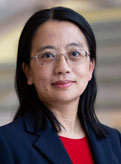
Min Wu
Why am I running for SPS President-Elect? The IEEE Signal Processing Society (SPS) is my “professional home” for 25+ years. Building on its successful early years of activities in the U.S., it has evolved to embrace a diverse membership around the world. I have served in many roles with volunteers from all regions and technical areas to benefit our members and community. These experiences have given me a strong sense of responsibility to contribute at the next level. I sincerely ask for your support of an opportunity to bring my experience and commitment to lead our very first society of the IEEE.
As President, I’ll continue to develop mechanisms and activities to make SPS a diverse and inclusive community and a supportive professional home by embracing members of different genders, regions, cultures, backgrounds, technical interests, and sectors. Toward making SPS a valuable professional home for our members, I will work with boards/committees to develop compelling values for our members and address the high-demand needs for members in different regions, sectors (including research & teaching universities, established companies & technology start-ups, etc.), and career stages (including students, junior professionals, mid-career, and senior ones). An example is to develop a strong portfolio of mentoring activities and career networking.
I will tackle the post-COVID challenges and finances creatively with an open mind, leverage my training and experience to address financial sustainability and growth, and help SPS reimagine its activity portfolio to serve our members in new/enhanced ways. I will promote a sound balance among multiple constraints, and strive for win-wins and sustainable successes within SPS and with partner organizations. Look forward to working with our members to promote career development, community building with diversity and inclusion, and advance together!
For more information about Min Wu, please visit https://www.ece.umd.edu/~minwu/SPS21/
The 2021 SPS President-Elect Candidate will outline their vision for their presidency during upcoming Town Hall events. Events dates and registrion details are noted below. When registering, you can submit questions you would like to see the candidates address during the Town Halls.
- Monday, 23 August, 11:00am-12:00pm U.S. Eastern (Register)
(5:00pm-6:00pm CEST | 8:30pm-9:30pm IST | 11:00pm-12:00pm CST) - Tuesday, 24 August 11:30pm-12:30am U.S. Eastern (Register)
(Wednesday, 25 August 5:30am-6:30am CEST | 9:00am-10:00am IST | 11:30am-12:30pm CST).
The 2021 candidates for Regional Director-at-Large (presented in alphabetical order) appear below. Candidate biographies will be included in the ballot.
Regions 7 & 9:
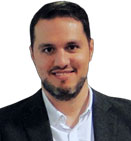
André Lima Ferrer de Almeida |
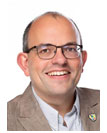
Fabrice Labeau |
Region 10:
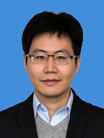
Tsung-Hui Chang |
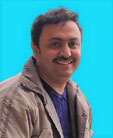
Chirag N. Paunwala |
The 2021 candidates for Member-at-Large (presented in alphabetical order) appear below. Candidate biographies will be included in the ballot.

Mohammad Faizal Ahmad Fauzi |
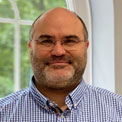
Alejandro Federico Frangi |
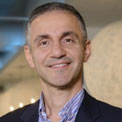
Mazin Gilbert |

Hamid Krim |
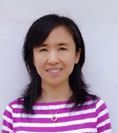
Xiaoli Ma |

Jean-Christophe Olivo Marin |
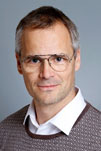
Marius Pesavento |
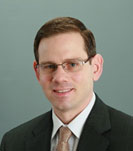
Anthony Vetro |
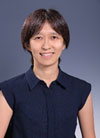
Hong (Vicky) Zhao |
The BoG is the governing body that oversees the activities of the SPS. The SPS BoG has the responsibility of establishing and implementing policy and receiving reports from its standing boards and committees and comprises 23 Society members: the President and President-Elect who are elected by the voting members of the Society, five Vice-President officers of the Society who are elected by the BoG, nine Members-at-Large elected by the voting members of the Society, four Regional Directors-at-Large elected locally by Society voting members of the corresponding region, as well as the Awards Board Chair and Young Professionals Committee Chair. The seven officers are the President, President-Elect, the Vice President-Conferences, Vice President-Education, Vice President-Membership, Vice President-Publications, and Vice President-Technical Directions. The Executive Director of the Society shall serve ex-officio, without vote.
The President-Elect is an IEEE Signal Processing Society member elected by the Society’s membership via the annual election, to serve as an officer and as a voting member on the Society’s Board of Governors, Executive Committee, Conferences Board, Education Board, Membership Board, and Publications Board. The President-Elect position automatically succeeds to President.
Regional Directors-at-Large are SPS members who are elected locally by Society voting members of the corresponding Region via the annual election to serve on the Society’s BoG as nonvoting members and voting members of the Society’s Membership Board.
Members-at-Large represent the member viewpoint in the Board decision making. They typically review, discuss, and act upon a wide range of items affecting the actions, activities, and health of the Society.
More information on the IEEE SPS can be found on Signal Processing Society website.
Questions or concerns related to election voting should be sent to ieee-spvote@ieee.org.

